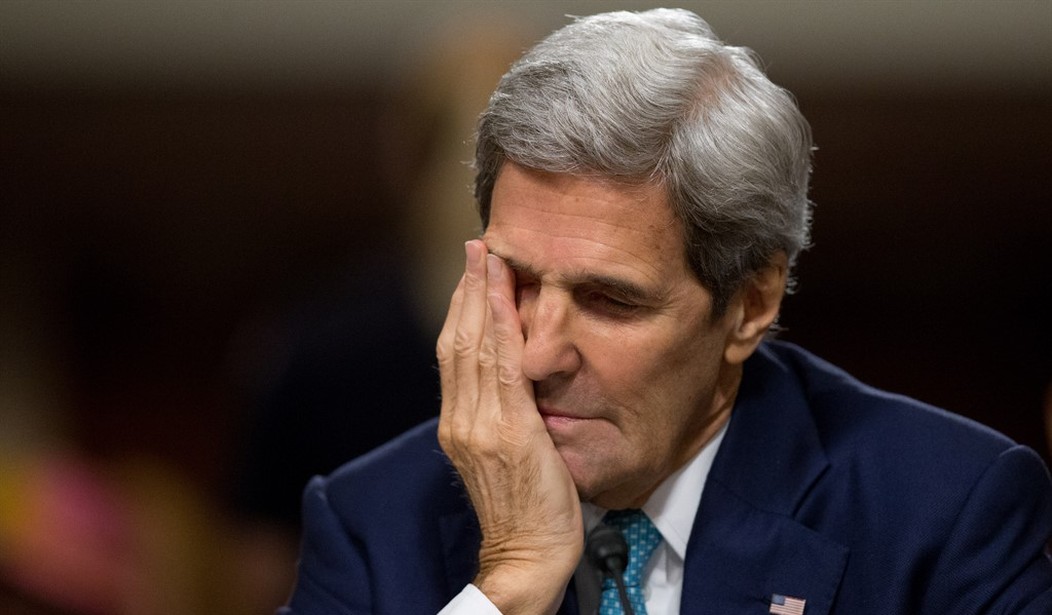Culturally and historically, political leaders in the Middle East respect strength, and they exude it regardless of if they have it. Their legitimacy depends on presenting an air of dominance. A prime example is Saddam Hussein’s fervent portrayal of his Iraqi military force as being much stronger than it was, prompting a more aggressive reaction from the U.S. and her allies in 1991. To the world’s surprise, Hussein’s forces in Kuwait fell in 100 days when faced with the U.S. and multinational powers in Desert Storm.
Every sovereign power seeks to defend and further its national interests. However, those national interests do not carry a sovereign right to eradicate another sovereign entity, namely Iran’s vow to destroy Israel and the U.S. since it 1979 theocratic revolution.
Iraq’s traditional enemy, Iran, has risen to a higher position of regional power and world nuclear threat. After two weeks of negotiations in Vienna, the Iranians stand a little taller having stood firm against the Americans last Tuesday.
President Obama stated that his primary goal was to limit Iran’s nuclear bomb capability, which it achieves for the time being at a cost in other ways. Economic sanctions of Iran were sacrificed for reducing Iran’s uranium production by 98 percent in 15 years. Sanctions are lifted, and hundreds of billions of dollars are returned to fund Iran’s terrorism, intimidation, and oppression. Meanwhile, three Americans remain imprisoned and a fourth is imprisoned in an unknown location. Human rights violations apparently did not receive even a hint of interest in the talks.
But, we digress from the president’s priorities . . .
Adding to the geopolitical games are Russia and China, who back the Iranians and see a lucrative market in selling arms to Tehran. They agreed to a five-year ban on the sale of conventional weapons and an eight-year ban on ballistic missiles – a sure sign that Congress will reject the deal. Why conventional weapons were a high priority in a nuclear agreement but American political prisoners were not is yet to be explained by the Obama-Kerry team.
Recommended
After four years of negotiations among Iran and the U.N. Security Council members, U.S., Britain, France, Germany, Russia, and China, Secretary of State John Kerry lowered his expectations, and this is the best he could get. In his public statement, President Obama sold the Iran nuclear deal to Americans as one of not trust but verification. That sounds stringent, but what that double-speak really means is that we cannot trust Iran to uphold this deal, and, therefore, it will inevitably fail after President Obama is no longer in office — or before, judging by Ayatollah Khamenei’s hostile comments immediately following that “U.S. policies in the region were 180 degrees opposed to Iran’s.” Chants of "Death to America" and "Death to Israel” were added just to clarify any confusion about the supreme leader’s attitude.
Nor does the deal address Iran’s inhumane oppression of their own people or participation in terrorism in the world. However, it does delay further necessary negotiations regarding the three American hostages Iran is holding. Sanctions simply will not “snap back into place,” as the president claimed. They must be approved by way of a U.N. resolution, and China and Russia are very likely to veto attempts to reinstate sanctions.
Future inspections must be thorough, given Iran’s history of evading, stonewalling, and tendency to violate agreements. We danced this dance before with Hussein’s Iraq. Appeasement of belligerent tyrants does not work. It never has. Should Iran refuse to adhere to the inspection agreement, a required 24-day period guarantees Iran enough time to subvert the conditions of the inspections and prepare an alternate course or to appear deceptively to follow the requirements. Again, this deal is not based on trust but on verification.
Thus far, all the Republican candidates for president have spoken in opposition to the Obama-Kerry deal with Iran, including Sen. Rand Paul, who earlier supported diplomatic talks.
Secretary Kerry and President Obama would rather have a bad deal than no new deal. Americans would rather have a secure deal than a dangerous deal.
The U.S. Senate is constitutionally required to confirm treaties made by the president, and they possibly could reject the Obama-Kerry agreement with Iran. President Obama eagerly declared that he will veto any alternative deal Congress proposes, hypocritically claiming that “this is not the time for politics or posturing,” proving his consistent refusal to negotiate with Congress and his willingness to negotiate with foreign enemies.

























Join the conversation as a VIP Member